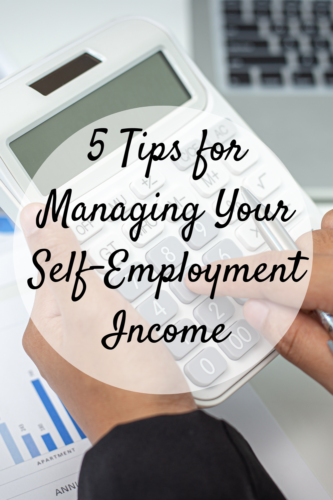
If you’re a business owner, a freelancer, or otherwise self-employed, you can face certain challenges that those who are more traditionally employed do not deal with. Some of those challenges are related to your finances. The tips below can help you better navigate this element of being your own boss.
Have Emergency Savings
First, it’s particularly important for you to have emergency savings to take you through lean times. Depending on the nature of your business, you may want to have both a personal cushion and one for the business or just a personal one. Think about cash flow as well; if there are going to be times when you need to be able to keep money going out even if you’re waiting on invoices to be paid, there needs to be some way to access funds. How much you’ll need will vary depending on your personal circumstances and the type of enterprise you’re running.
Be Smart About Taxes
It can be easy to make mistakes on your taxes. Unlike a regular employee who gets both Social Security and the regular money that they owe withheld, you’ll need to calculate that amount on your own. Whether you are a freelancer, you own a limited liability corporation or you’re a real estate investor, you need to understand both your tax situation as it relates to your business and whether it affects your personal taxes.
If your company is like most in the U.S., it is classes as a pass-through business, meaning that you will be taxed on your individual return. This is the case if you run a sole proprietorship, an S corp or an LLC but not if you own a C corp. You can benefit with a tax break from the Tax Cuts and Jobs Act of 2017 if you are a pass-through enterprise. This is known as the Qualified Business Income Deduction. You can find out more about the QBI deduction, whether you are eligible and how to claim it.
Have a Budget
While you need to have a business budget, creating a personal budget is particularly important because your income may not be regular. Your cushion of emergency savings can help you with this to some extent, but in general, it will be important that you spend below your means since you are likely to have times when money is coming in and other times when little or none is coming in. Rather than spending a lot in the flush times and suffering in the lean times, a budget can help you stay more consistent.
Get Health Insurance
Many get health insurance through their job. As a self-employed person, you’re in a different position. Depending on whether you have employees and other factors, you may be able to get employment-based insurance as well. However, if you’re a freelancer or a sole proprietor, you might need to purchase an individual plan. This will vary depending on where you are located, so do your research and find out which option is best for you.
Save for Retirement
As with health insurance, many save for retirement through their employers. As a self-employed person, you will need to do this on your own. The options available to you will vary based on whether you are setting up the account as an individual or through a company with employees, but don’t neglect this element of managing your income. Your main choices may include a Solo 401(k) or a defined benefit plan or one of several types of IRAs: a traditional, Roth, SEP, or SIMPLE IRA. During lean times, it can be tough to keep putting money away in this account, but you will be glad you did in the long run.





Leave a Reply